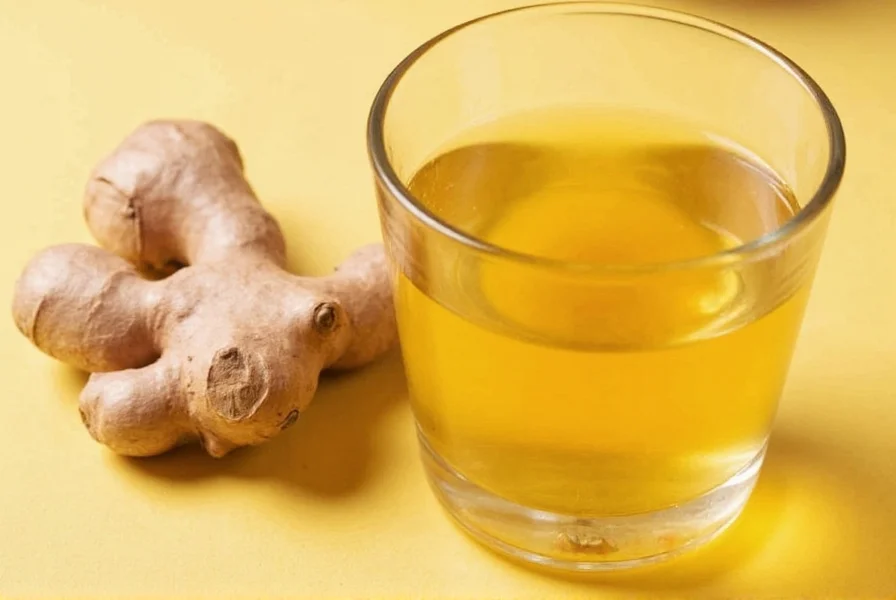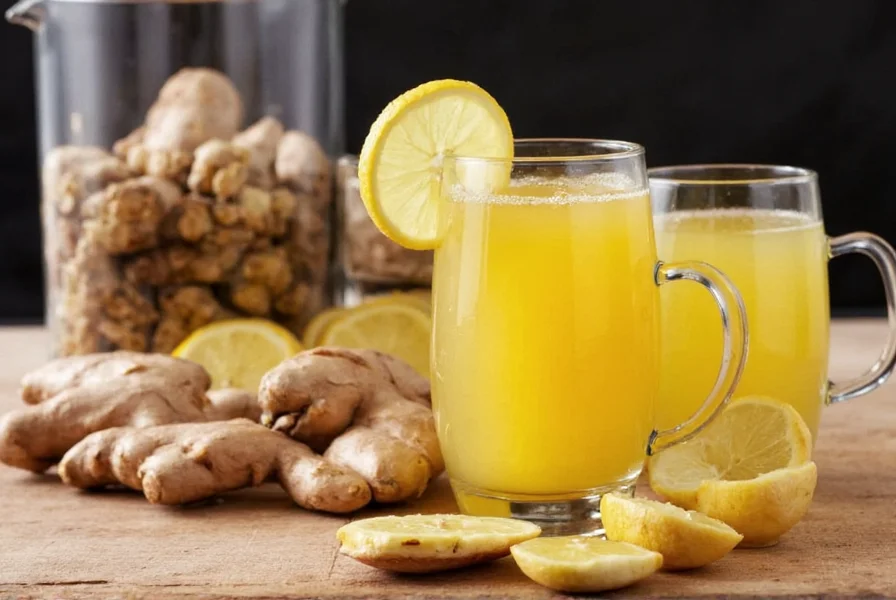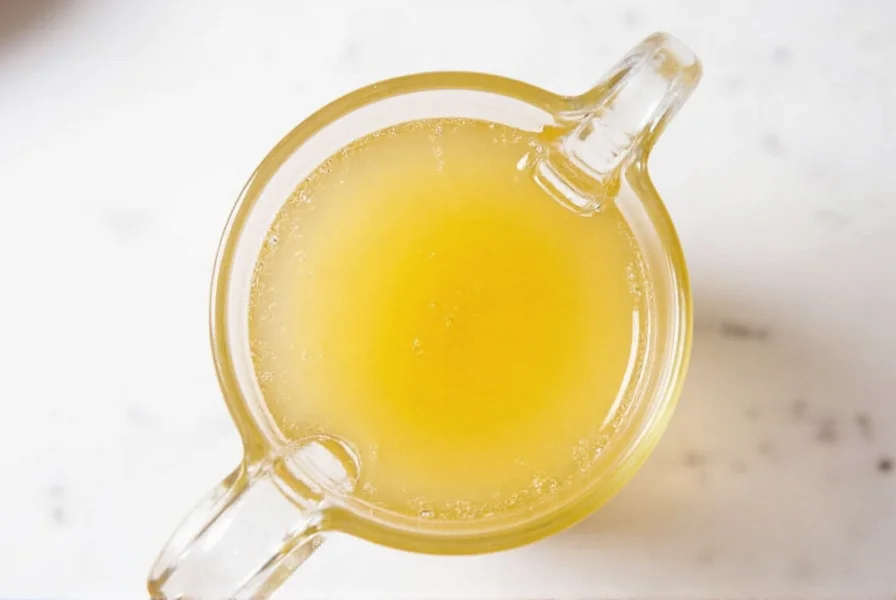For centuries, ginger has been celebrated in traditional medicine systems worldwide for its therapeutic properties. Modern research continues to validate many of these traditional uses, particularly when it comes to ginger consumed as a beverage. Whether you're seeking relief from digestive discomfort, looking to boost your immune system, or simply wanting to incorporate more natural wellness practices into your daily routine, ginger drinks offer a simple yet powerful solution.

Health Benefits of Ginger Beverages
Scientific studies have identified numerous health benefits associated with regular consumption of ginger drinks. The active compounds in ginger, particularly gingerols and shogaols, contribute to its medicinal properties.
Digestive Support - Ginger stimulates saliva, bile, and gastric enzyme production, helping break down food more efficiently. Research published in the World Journal of Gastroenterology found that ginger accelerates gastric emptying by up to 25%, making it particularly beneficial for those experiencing indigestion or bloating.
Nausea Relief - Multiple clinical trials have demonstrated ginger's effectiveness against various forms of nausea, including morning sickness during pregnancy, motion sickness, and chemotherapy-induced nausea. A systematic review in Nutrition Reviews concluded that 1-1.5 grams of ginger daily significantly reduces nausea symptoms.
Anti-Inflammatory Effects - The gingerols in ginger inhibit inflammatory pathways in the body. Regular consumption of ginger tea may help reduce muscle pain and soreness, with one study showing a 25% reduction in exercise-induced muscle pain when participants consumed ginger daily for 11 days.
| Ginger Beverage Type | Preparation Time | Key Benefits | Best Consumed |
|---|---|---|---|
| Fresh Ginger Tea | 10-15 minutes | Digestion, immunity | Morning or before meals |
| Ginger Lemon Honey Drink | 5 minutes | Immune support, sore throat relief | At first sign of illness |
| Ginger Turmeric Golden Milk | 15-20 minutes | Anti-inflammatory, joint health | Evening before bed |
| Ginger Shot (concentrated) | 2-3 minutes | Metabolism boost, quick relief | Morning on empty stomach |
Popular Ginger Drink Variations
Understanding the different ways to prepare ginger beverages helps you select the right option for your specific needs. Each variation offers unique benefits based on preparation method and additional ingredients.
Fresh Ginger Tea
The simplest and most traditional ginger drink requires only fresh ginger, water, and optional additions like lemon or honey. To prepare: slice or grate 1-2 inches of fresh ginger, simmer in 2 cups of water for 10-15 minutes, strain, and add lemon or raw honey to taste. This natural ginger drink for digestion works best when consumed 20-30 minutes before meals to prepare your digestive system.
Ginger Lemon Honey Elixir
This popular combination leverages the synergistic effects of three powerful natural ingredients. The vitamin C from lemon enhances ginger's antioxidant effects, while raw honey adds antimicrobial properties. This ginger drink for immune system support is particularly valuable during cold and flu season. Prepare by mixing freshly brewed ginger tea with the juice of half a lemon and 1-2 teaspoons of raw honey once cooled to preserve honey's beneficial enzymes.

Ginger Shots
Concentrated ginger shots have gained popularity for their potent effects. Typically containing 1-2 ounces of highly concentrated ginger juice, often with lemon and a touch of honey, these provide a quick metabolic boost and immediate digestive support. The best time to drink ginger water in shot form is first thing in the morning on an empty stomach to kickstart digestion and metabolism for the day.
Optimal Timing for Ginger Beverages
When you consume ginger drinks significantly impacts their effectiveness for specific health goals:
- Morning consumption - Ginger shots or tea first thing in the morning can stimulate digestion, boost metabolism, and provide natural energy without caffeine. This is ideal for those seeking ginger drink benefits for weight loss.
- Before meals - Consuming ginger tea 20-30 minutes before eating prepares your digestive system, potentially reducing bloating and improving nutrient absorption.
- During illness - More frequent consumption (3-4 times daily) of ginger lemon honey drinks can help alleviate symptoms of colds and respiratory infections.
- Evening relaxation - Golden milk with ginger and turmeric serves as a calming, anti-inflammatory evening beverage that supports restful sleep.
Safety Considerations and Potential Side Effects
While ginger is generally safe for most people, understanding proper consumption guidelines prevents potential issues. The recommended daily limit for ginger is 4 grams for adults, which translates to approximately 2-3 cups of standard ginger tea.
Certain populations should exercise caution with ginger beverages:
- Individuals taking blood-thinning medications should consult their doctor, as ginger may increase bleeding risk
- Pregnant women should limit consumption to 1 gram daily (about one standard cup of ginger tea) after the first trimester
- Those with gallstone issues should consult a healthcare provider before regular consumption
- People with low blood pressure should monitor their levels when consuming ginger regularly
Excessive consumption (more than 4 grams daily) may cause heartburn, mouth irritation, or stomach upset in sensitive individuals. If you experience any adverse effects, reduce your intake or discontinue use.
Preparing Ginger Drinks: Fresh vs. Dried
When deciding between fresh and dried ginger for your beverages, consider these factors:
- Active compounds - Fresh ginger contains higher levels of gingerol, while dried ginger has more shogaol (formed when gingerol is dehydrated), which is more potent but less abundant
- Flavor profile - Fresh ginger offers a brighter, more citrusy flavor, while dried ginger provides a deeper, more concentrated spiciness
- Preparation - Fresh ginger requires peeling and slicing/grating, while dried ginger (powder or whole) is more convenient but may contain additives
- Shelf life - Fresh ginger lasts 2-3 weeks refrigerated, while dried ginger maintains potency for 6-12 months when stored properly
For most health benefits, fresh ginger is preferred as it contains the full spectrum of active compounds. However, high-quality organic dried ginger works well when fresh isn't available. Understanding these differences helps you make informed choices about fresh ginger vs dried ginger for drinks.
Frequently Asked Questions
How much ginger should I use for a standard cup of ginger tea?
For a standard 8-ounce cup of ginger tea, use 1/2 to 1 inch of fresh ginger root (sliced or grated). This provides approximately 1-1.5 grams of ginger, which is within the recommended daily limit when consumed as part of your total ginger intake. If using dried ginger powder, 1/4 to 1/2 teaspoon is sufficient.
Can I drink ginger tea every day?
Yes, you can safely drink ginger tea daily within recommended limits. Most studies show benefits with 1-3 grams of ginger daily, equivalent to 1-3 cups of standard ginger tea. However, if you have specific health conditions or take medications, consult your healthcare provider before making ginger tea a daily habit.
When is the best time to drink ginger water for weight loss?
The optimal time to drink ginger water for weight management is 20-30 minutes before meals, as it can help regulate appetite and improve digestion. Many people also find benefit in drinking ginger water first thing in the morning on an empty stomach to kickstart metabolism. Consistency matters more than timing—regular consumption as part of a healthy lifestyle yields the best results.
Does ginger tea lose its benefits when cooled?
No, ginger tea maintains its beneficial compounds when cooled. The active components in ginger (gingerols and shogaols) are heat-stable and remain effective whether consumed hot or cold. Some people prefer chilled ginger water throughout the day for continuous digestive support without the heat of tea.
Can ginger drinks interact with medications?
Yes, ginger may interact with certain medications, particularly blood thinners like warfarin, as it has natural anticoagulant properties. It may also affect diabetes medications by lowering blood sugar. If you take prescription medications, especially for blood pressure, blood sugar, or blood clotting, consult your healthcare provider before regularly consuming ginger drinks.











 浙公网安备
33010002000092号
浙公网安备
33010002000092号 浙B2-20120091-4
浙B2-20120091-4